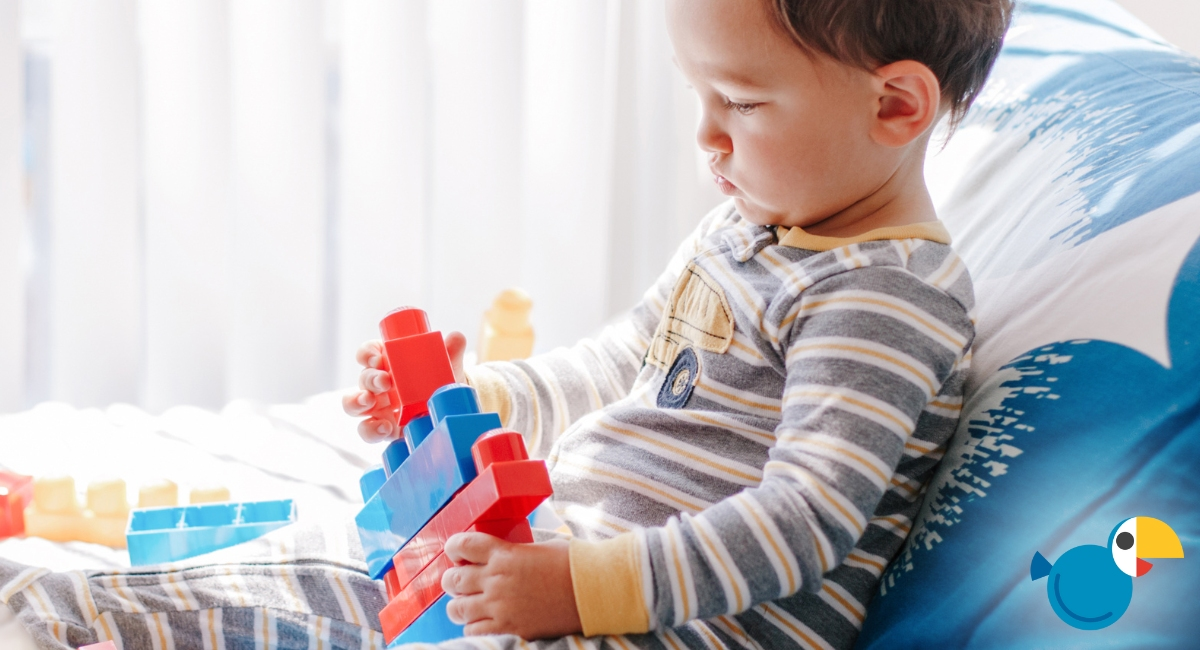Counting the Way to School Success: Counting and Comparing Objects
Unlocking the door to a school success begins with mastering fundamental skills. Among these, the ability to compare objects by quantity is a simple but important one. In this blog post, we explore the significance of this skill in early childhood education, shedding light on its impact on later math skills and providing five simple yet effective ways to nurture it in young learners.
What is school readiness?
Kids are usually five years old when they start kindergarten, but being ready for kindergarten isn't just about age. It's about having strong relationships with caregivers and positive environments to learn starting from the time a baby is born. Families, caregivers, and communities all have a job to do in helping kids grow up healthy and ready for school.
.png)
There are many aspects to being “School Ready” and parents and caregivers can begin preparing children from the day they are born through positive interactions, simple conversations, and play. 80% of brain development happens in the first three years of a child’s life so it’s never too early to begin talking, reading, singing, counting, and playing to boost brain development.
|
|
Counting and Comparing: A Fundamental Skill In the mosaic of early childhood development, the ability to compare objects by quantity emerges as a crucial building block. From the beginning, children are naturally drawn to counting – an instinctive curiosity that lays the groundwork for more complex math concepts later on. Showing up to their first say of school with a firm understanding of counting objects will start them on the right track! |
Benefits of Early Learning and Math Skills
Early exposure to counting and comparing provides a countless benefits. Beyond the obvious, it cultivates cognitive abilities, sharpens problem-solving skills, and fosters a sense of order and structure. These foundational skills become the scaffolding upon which future academic successes are built.
Five Simple Ways to Count and Compare with Young Children
-
Everyday Objects Exploration: Use daily activities to engage in counting. Whether it's counting the number of apples in the fruit bowl or the socks in the laundry, or counting the steps as you walk up or down them, turning routine moments into learning opportunities makes the process enjoyable.
-
Nature Walk Tally: Take a stroll outdoors and turn it into a counting adventure. Count the birds on a tree, flowers in a garden, or rocks on a path. This not only hones counting skills but also connects learning to the real world.
-
Storytime Math: Infuse simple math into your reading time. Count characters, objects, or actions in the story. This not only makes learning fun but also introduces math language in a fun way!
|
4. Get cooking: Involve children in simple cooking activities that require counting and measuring. Counting eggs, measuring flour, or even setting the table with a specific number of plates can turn the kitchen into a math classroom. They will love being helpers, and learn life skills too! 5. Building Blocks Bonanza: Play blocks or Legos with your child. Count the number of blocks used to create a tower and compare the heights of different structures. This simple activity lets them see and compare the numbers. “This tower has 1, 2, 3, blocks. This one has 1, 2, 3, 4, 5 blocks. This one is taller.” |
|
As parents or caregiver, nurturing the skill of comparing objects by quantity is an investment in a child's future. These simple yet effective activities will make learning fun but also provide a solid foundation for harder math concepts they will learn years later. By integrating these practices into daily routines, you can set the stage for a successful journey through the world of education.
Which one will you try today?
To learn more about how you can boost your little one’s brain development check out The Palmetto Basics and follow us on Instagram for weekly Basics tips!
© 2025 Hello Family. All Rights Reserved|
Privacy | Cookies |
Site by ALINE, A Marketing Company



.png)
